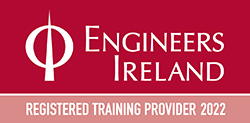-
Courses

Courses
Choosing a course is one of the most important decisions you'll ever make! View our courses and see what our students and lecturers have to say about the courses you are interested in at the links below.
-
University Life

University Life
Each year more than 4,000 choose University of Galway as their University of choice. Find out what life at University of Galway is all about here.
-
About University of Galway

About University of Galway
Since 1845, University of Galway has been sharing the highest quality teaching and research with Ireland and the world. Find out what makes our University so special – from our distinguished history to the latest news and campus developments.
-
Colleges & Schools

Colleges & Schools
University of Galway has earned international recognition as a research-led university with a commitment to top quality teaching across a range of key areas of expertise.
-
Research & Innovation

Research & Innovation
University of Galway’s vibrant research community take on some of the most pressing challenges of our times.
-
Business & Industry

Guiding Breakthrough Research at University of Galway
We explore and facilitate commercial opportunities for the research community at University of Galway, as well as facilitating industry partnership.
-
Alumni & Friends

Alumni & Friends
There are 128,000 University of Galway alumni worldwide. Stay connected to your alumni community! Join our social networks and update your details online.
-
Community Engagement

Community Engagement
At University of Galway, we believe that the best learning takes place when you apply what you learn in a real world context. That's why many of our courses include work placements or community projects.
Critical Business Skills (Diploma)
Course Overview
The Diploma in Critical Business Skills aims to enable those with non-business backgrounds, to fulfil their potential and progress to middle management roles. The course is designed to develop critical business skills required to contribute to economic development and productivity within their organisation or elsewhere.
The syllabus will use methods of self-reflection to evaluate personal performance and professional development. Participants will assess personal strengths, characteristics and skills that impact on workplace performance. They will design strategies to enhance personal and organisational strengths and manage weaknesses. Graduates will develop valuable leadership and management skills required to maximise their team's contribution to the organisation. Negotiation skills are a key skill in a wide range of business contexts, such as contracts, deal-making, employment discussions, team building, and disputes. This course will enable graduates to understand, accommodate and manage individual differences through constructive negotiations.

The Diploma in Critical Business Skills is approved by Engineers Ireland as a CPD learning opportunity for engineers.
Mode of Study: Online Learning
Applications and Selections
Applications are made online via the University of Galway Applications System. This course is listed under Adult Learning Undergraduate\Postgraduate, CPD, Micro-credentials & Summer School Applications.
Please visit our How to Apply page for Application tips and Supporting Documents information.
NB: Applicants must have a level 7 award in any discipline of no less than 90 ECTS.
Who Teaches this Course
Requirements and Assessment
Modules are assessed by a combination of written assignments, online activities and a block release workshop in semester 2 for the module Negotiation Skills.
Key Facts
Entry Requirements
Applicants must have a level 7 award in any discipline of no less than 90 ECTS. Three years of industry experience is desirable, but not essential. General entry requirements for part-time students can be found here (i.e. age, English language requirements etc.).
Additional Requirements
Recognition of Prior Learning (RPL)
Duration
1 year, part-time
Next start date
September 2024
A Level Grades ()
Average intake
25
QQI/FET FETAC Entry Routes
Closing Date
NFQ level
8
Mode of study
Online Learning
ECTS weighting
30
Award
Diploma
CAO
Course code
Course Outline
Modules are as follows:
Semester 1
Business Law I
Organisational Psychology and Analysis
Leading and Managing People
Semester 2
Management Skills
Critical Thinking
Negotiation Skills
Further Education
Graduates may go on to select from a range of level 8 and 9 postgraduate courses at the University of Galway or further afield.
Why Choose This Course?
Career Opportunities
Graduates can progress in a diverse range of industries, such as financial services, information systems and human resources.
Who’s Suited to This Course
This course is suitable for those with non-business backgrounds. This course is designed to develop digital, transversal, management and leadership skills within graduates. Graduates should also develop the fundamental skills necessary to adapt to market trends and prepare for the future.
Upon successful completion of this course, graduates should be able to:
- Understand the relevant business regulations and legislation
- Achieve key analytical, critical thinking, negotiating and leadership skills required for business success
- Critically examine the national and global business environments to identifying market needs and trends
Learning Outcomes
Transferable Skills Employers Value
Work Placement
Study Abroad
Related Student Organisations
Course Fees
Fees: EU
Fees: Tuition
Fees: Student levy
Fees: Non EU
A fee scholarship of up to 30% may be available for students who wish to upskill for the purposes of re-employment. For more information download the 2024_25 Fees Scholarship Form
Find out More
Course Administrator
Tel: 091 495786
Email: ptbusiness@universityofgalway.ie
What Our Students Say

Kevin Fitzgerald | Graduate
Engaging in the diploma has helped me develop a grounding in business skills. The course is challenging but well-paced over two semesters. Overall the experience was immensely enjoyable and practical. I developed skills & knowledge in the areas of management & personal development, business law & contracts, negotiation, HR practices & critical thinking which I could apply in my job immediately. There was a good mix of live lectures & discussions, lots of preloaded material and up-to-date knowledge on key business topics. Being part-time allowed me to manage this workload outside of work & family. Personally the course has benefited me by gaining a recognized business qualification. It has given me transferrable skills to self-reflect on my management style, approach business decisions with fresh eyes and fresh inputs. I listen more – seek to understand and be understood – and skills learnt started to bring more value in my day-to-day projects and activities. Professionally I have used this course to fill a gap in my resume around business education, this has provided me new tools, techniques and skills to approach my job in a different way.



















